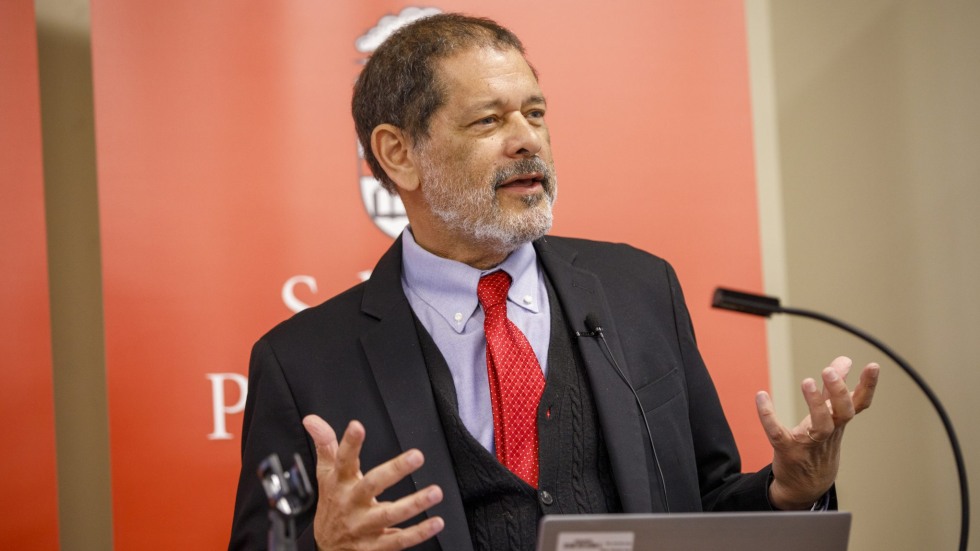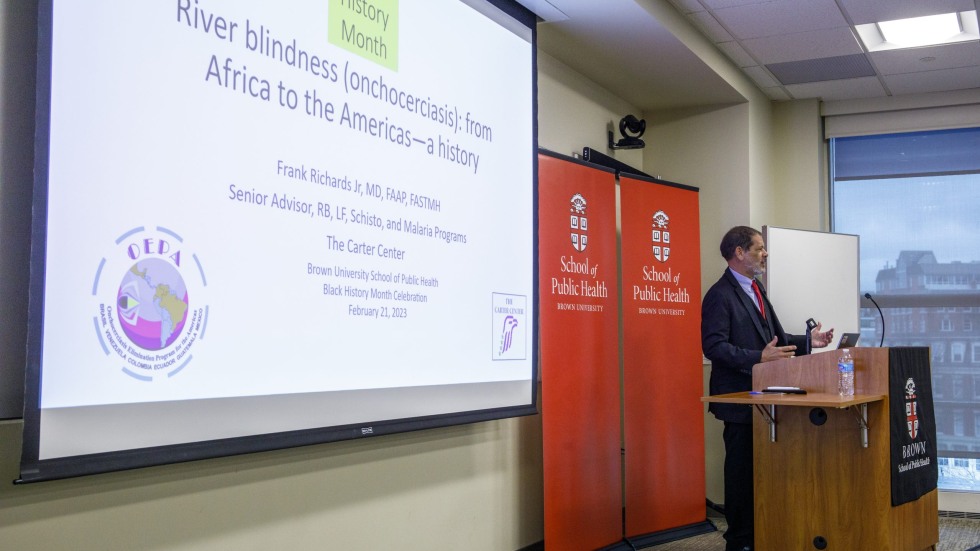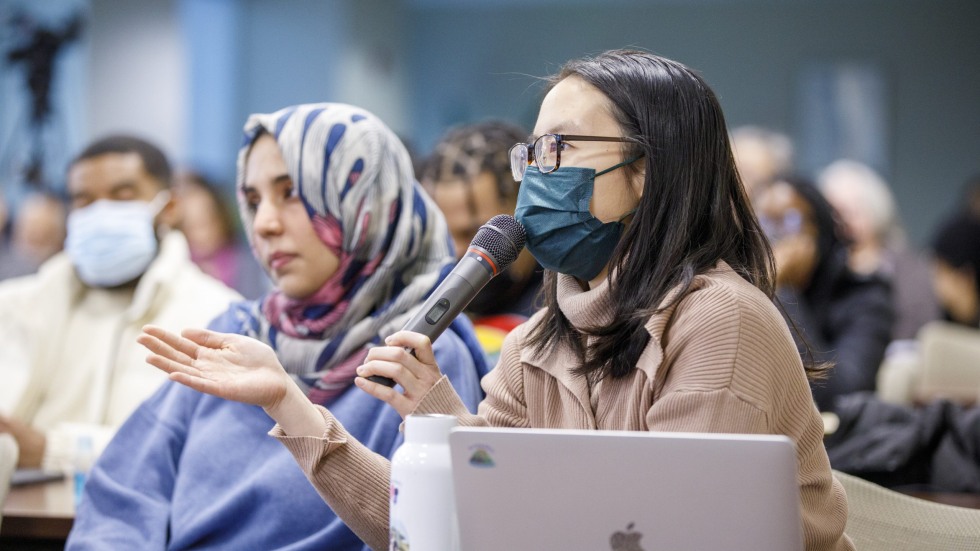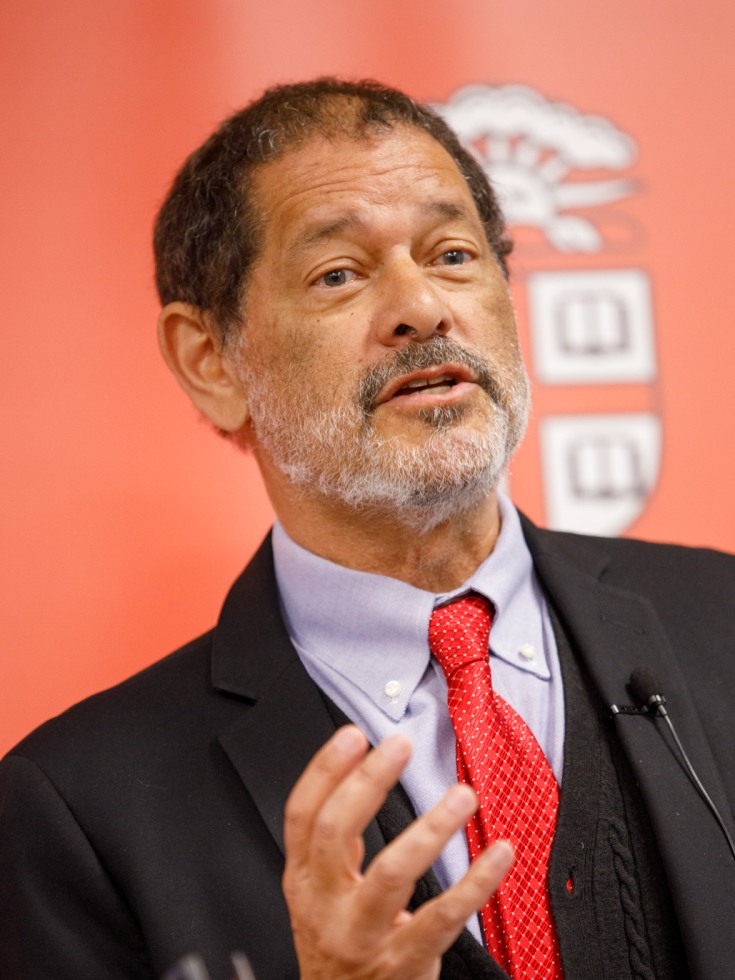Dr. Frank Richards Jr, a world-renowned expert on vector-borne parasitic diseases, delivered a powerful Black History Month keynote address at the Brown University School of Public Health on February 21, 2023. His presentation, “River Blindness (onchocerciasis): from Africa to the Americas,” considered the Atlantic slave trade’s potential role in spreading the disease. Richards recounted the arrival of river blindness to the Americas during the early 1500s, alongside his personal history, and his successful efforts with the Carter Center to eliminate the disease from much of Central and South America.
“Dr. Richards’ work is groundbreaking and inspiring,” said Interim Dean Ronald Aubert. “His commitment to eliminating vector-borne parasitic diseases has manifestly changed the world, and his efforts have helped to eliminate these diseases from nearly a dozen countries on two continents.” In his opening remarks, Aubert said it was “a thrill” to have Richards share his expertise and experiences with the Brown audience.
During his talk, Richards described river blindness as a relic of the slave trade that arrived in the Americas during the Columbian Exchange, a historical moment that marked the collision of peoples, goods, ideas, and diseases between the Eastern and Western hemispheres.
“When Christopher Columbus arrived in the New World,” Richards said, “two biologically distinct worlds were brought into contact. The results of this exchange recast the biology of both regions and altered the history of the world.”



